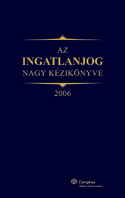
Attorney remuneration
The Act 11. of 1998 on the attorneys enacts in Section 9. § paragraph (1) – (2) that the attorney is entitled to a fee and reimbursement of costs for his activities. According to Section 23.§. the contract of mandate comes into existence between the client and the attorney when the parties agree in the terms of the agreement on the attorney fee and the foreseeable expenses. The parties may agree in a flat rate as well. The amount of the attorney fee is based upon the free agreement of the parties. Consequently, based on a yearly actualized fee schedule our office makes an offer on the attorney fees and expected expenses before administering a case. In generating the fee offer the case load and liability is taken into consideration.
The contract of mandate comes into existence by the acceptance of the fee offer by the client. Before administering the case our office sets down the mandate in writing as addressed by Section 23.§ paragraph (2) of the act on the attorneys “The contract of mandate- except for the case of legal counseling – must be in writing. Failure of setting down the attorney fees does not affect the validity of the mandate but in this case the attorney has to prove the content of the mandate.”
In accordance to the Hungarian professional ethics and rule 2 / 2001 (IX. 3.) of the Board of Directors of the Hungarian Bar Association, the content of an attorney’s web pages can neither publicize, nor announce their fee schedule.
Regulation 8 / 1999. (III.22.) MÜK of the Hungarian Bar Association on the legal professional ethical rules and expectations addresses the attorney fees in Section 9. According to Section 9. 1. “upon undertaking a case the attorney shall give information on the attorney fee and expectable expenses determinable by the court. The attorney shall give a certificate of receipt about the accepted attorney fees. If the attorney takes on a case as a matter of courtesy, this circumstance shall be included in the contract of mandate.” According to Section 9. 2. “It is prohibited to accept any kind of material or immaterial compensation beyond the attorney fee and expenses set forth in the contract of mandate.” Section 9. 3. specifies that “if the contract of mandate terminates before the mandate is fulfilled the attorney shall account with the accepted fees and may withhold the fee proportionate to the work completed by the termination of the contract.”
In civil litigation the court adjudicates the attorney fee and other costs related to the conduction of the case (expenditures) to the prevailing party. However, the court is not bound by the client-attorney agreement on the fees and costs. However, if the prevailing party adverts to the submitted agreement and requests the court to assign the fees to the losing party the court will move according to Section 2.§ paragraph (1) of rule 32 / 2003.(VIII.22.) IM. and will have the losing party pay a) the attorney fee included in the contract of mandate and b) the cost allowances paid by the client to his attorney as accountable expenditures.
If the attorney fee set forth in the contract of mandate is unreasonable the court may reduce it so that it is in proportion with the value of the case or the labor completed by the attorney and the responsibilities attached thereto. The court must give a reasoned decision for the change of the attorney fees. However, if there is no agreement on the attorney fees between the prevailing party and his attorney, or the attorney has not adverted to the agreement during the process, nor had he submitted it on demand of the court, the court shall determine the attorney fees per request as follows:
a) if the value of the case does not exceed 10 million HUF, the attorney fee is 5 % of the case value but at least 10.000 HUF;
b) if the value of the case is above 10 million HUF but below 100 million HUF, the attorney fee allocated is the amount from (a) plus 3% of the sum above 10 million HUF but at least 100,000 HUF;
c) if the value of the case is above 100 million HUF the attorney fee allocated is the amount from (b) plus 1% of the sum above 100 million HUF but at least 1 million HUF.
However, if the value of the case is not determinable in the litigation process the attorney fee is 5,000 HUF per hour or fraction thereof, but a minimum 10,000 HUF. This includes trial hours and documented hours before and after the trial.
In alternative dispute resolution (ADR) and reprised cases due to annulment the attorney fee shall be 50 % of the fee in litigation at the most. The attorney fees in the appellate and review procedures are 50% of the amounts determined above but in these instances the value of the case is based on the disputed amounts included in the petitions. In the course of determining the attorney fees the court may reduce the amount of the attorney fee if it is not in proportion with the actual completed labor. The court may also determine a higher attorney fee because of the complexity of the case. However, even in this instance it cannot determine a fee higher than what was set in the contract of mandate. The court must give justification for determining a divergent attorney fee. Per request, the court determines the amount of accrued litigation expenses of the attorney based on the attorney’s submitted detailed statement.
If needed, the court may demand the attorney to account for the costs included in his statement. If the attorney does not specify or account for the costs by the deadline set by the court, the court will not establish the costs.
The amount of the attorney fee calculated above does not include the value added tax (VAT) burden on the consideration for the actual activities. The value added tax shall be calculated over the sum of the fee – according to a separate regulation. Therefore, if the attorney (according to the value added tax regulation) has the right to deduct taxes then only the net amount of his documented costs can raise the tax base.
The most important rules on court cost concerning the attorney fees enacted in Section 78-81.§ of Act 3. of 1952 on the Civil Procedure are the following:
Commonly the losing party must be obliged to pay the fees of the prevailing party. The court assesses the court costs based on the parties’ presentation and documentation. The court may not determine the court costs higher than the party estimated. However, if the party did not estimate or document the costs the court will ex officio allocate the court costs according to the available data. No later allocations of costs are possible. In case the respondent did not give a reason for the case and admits the claim on the first hearing the plaintiff must be dismissed with costs of the respondents. The party who unsuccessfully or unduly does certain acts in litigation, or misses certain terms or deadlines, or causes unnecessary expenses in any other manner must pay his accruing costs hereof even if he prevails in the case and might be ordered to pay the costs of the respondent party as well. In case of partial prevailing the court determines the court costs in proportion to the ratio of prevailing and the amount of expenses advanced by the parties. If there is no considerable difference between the ratio of prevailing and unprevailing, and the amount of expenses advanced by the parties, then the court orders the parties to bear their own expenses. If someone sues for damages or any other such claim the amount of which needs to be determined by the court, the respondent may be ordered to pay the court costs equal to the charges against him even if the court orders a lesser amount of compensation but the costs to be paid are still not deemed evidently exaggerated.
According to Section 153. § paragraph (1) of the Act 140. of 2004 on the administrative authority process and services the costs of the process are the cost and mandate fee (wage) of the mandatee. The administartive authority shall determine who must bear such costs. In case there was a respondent in the adinistrative litigation whose petition was dismissed or who was obligated against the plaintiff by the authority will also be obliged to pay the cost and the fee, wage of the mandatee. In case of an ex officio process, if the authority acted unsuitably or not cost-effectively it must reimburse for such costs.


